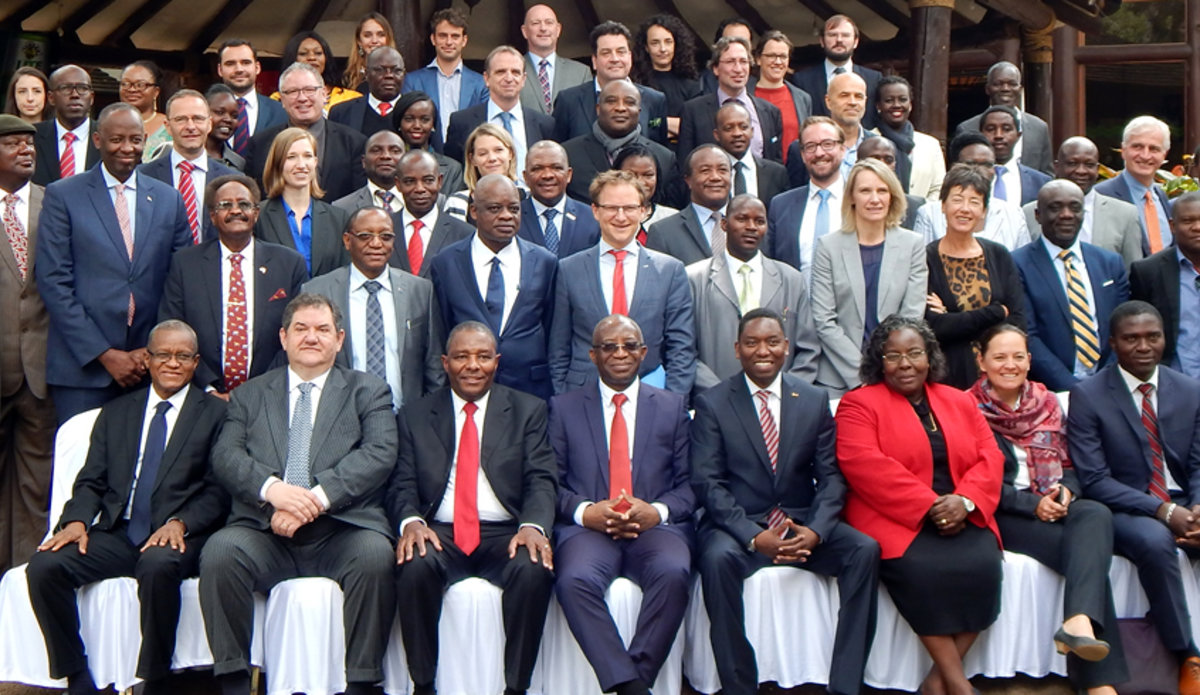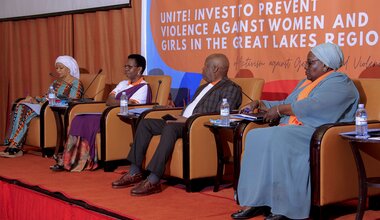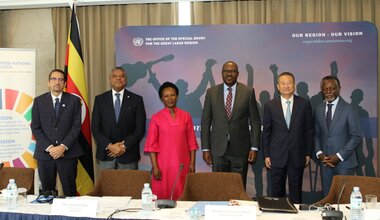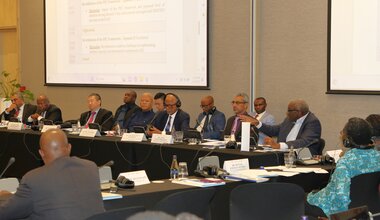Regional experts consult on ways to curtail illegal trade of natural resources in Africa’s Great Lakes region
Nairobi, 5 July 2017 – Experts from Africa’s Great Lakes region arrived in Nairobi, Kenya, for consultations on how to tackle illegal trade of natural resources in the region. The main focus of the two-day meeting, which ends on 6 July, is to assess progress in the implementation of the Regional Initiative against the Illegal Exploitation of Natural Resources – also known as the Initiative -- and to identify areas of specific challenges in this illegal trade. The Initiative, which was launched in 2010 by the International Conference on the Great Lakes Region (ICGLR) as an instrument to combat the illegal use of natural resources, aims to break the link between mineral revenues and rebel financing.
Other efforts and initiatives have also been undertaken to try and undercut the lifelines of rebel activities in the Great Lakes region, particularly in the mineral-rich eastern Democratic Republic of the Congo (DRC). For example, biannual forums have been organized by the ICGLR, the Organisation for Economic Co-operation and Development (OECD) and the United Nations Group of Experts on responsible mineral supply chains, which review the implementation of the OECD Due Diligence Guidance for Responsible Supply Chains of Minerals from conflict affected areas.
In February 2015, the DRC, the United Nations Stabilization Mission in the DRC (MONUSCO), the United Nations Environment Programme (UNEP) and the Office of the United Nations Special Envoy for the Great Lakes region convened a regional expert meeting in Goma, eastern DRC, to assess the situation. The meeting concluded that funds amounting to more than USD 1 billion flow out of the region annually as a result of the illegal exploitation of natural resources, with roughly half of it coming from illicit exports of artisanal gold. An estimated 3% of these revenues flow back to illegal armed groups, thus contributing to continuing insecurity in the region.
The illegal exploitation of natural resources has also been high on the agenda of the United Nations Regional Strategic Framework, which was launched on 21 March 2016 to better align United Nations efforts in the region with the objectives of the Peace, Security and Cooperation Framework agreement for the Democratic Republic of the Congo and the region.
In April and November 2017, the ICGLR and the Office of the UN Special Envoy for the Great Lakes region convened the Directors of Public Prosecution from the region in Nairobi to discuss ways to address crimes related to the illegal exploitation and trade of natural resources. The meeting led to a cross-border network of regional judicial cooperation. Their next meeting will further focus on impunity vis-a-vis the illegal trade of natural resources.
Furthermore, in recent meetings facilitated jointly by the ICGLR and the Office of the Special Envoy, civil society and the youth of the region also recognized the relevance of their role in monitoring activities in the natural resources sector with a view to providing checks and balances for improving the governance of the sector.
Today’s meeting comes in response to a call by the Ministers of Defence of the Great Lakes region and the Southern African Development Community (SADC) on 20 July 2016 in Nairobi, ‘to convene a dedicated meeting on the issue of illegal exploitation of natural resources aimed at undercutting the lifelines of negative forces.’ The meeting will also be dedicated to reviewing initiatives beyond minerals and discuss ways to enhance coordination and cooperation.
The outcome of these consultations will be submitted to the ICGLR Regional Committee on Natural Resources and the ICGLR National Coordinators for purposes of technical analysis and further guidance.
 UN
UN





